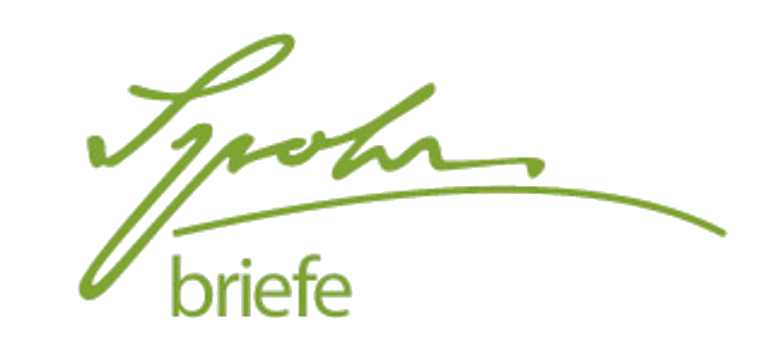1845111634
Edward Taylor an Louis Spohr in Kassel
London, Sonntag 16. November 1845
Autograf: Universitätsbibliothek Kassel - Landesbibliothek und Murhardsche Bibliothek der Stadt Kassel (D-Kl), Sign. 4° Ms. Hass. 287[Taylor, E.:43
Dr. Louis Spohr
Hesse Cassel
Germany
via Ostend
Gresham College
November 16. 1845
My Dear & valued Friend
I reveived, thro Char Horsley, your most valuable and highly prized gift.1 I do, indeed, thank you for it with all sincerity of heart. Valuable as it is in itself, to me it has a double nature, in2 the kind record of your friendship which you have heen pleased to inscribe upon it.
I should have written to acknowledge the receipt of it before – but it was scarcely in my hands, whom there came such a beseeching letter from Margaret imploring me to send it directly, that the Opera was sent down to Harpford. I knew, that in her present solitude, nothing would render her so happy as this dear & valued present. I have, since, been into Devonshire, & we have endeavored (with the assistance of a very clever young friend of Maragaret) to sing as play as much of it as we could. I have also carried it to Herr Benedict, who has played it thro‘ to me. I can only, when alone, sit down & read it, which I do with wonder & delight, endeavouring to realize the beautiful & striking effects which appear.
I think the last Act is one of the most powerful Dramatic effects I ever met with. But this is one of your especial characteristics as a composer for the Stage. Music is a powerful and valuable Dramatic Agent: but it is3 one of which some composers neither know the value, the power, nor the right employeent. They mix a Drama & Music together & think they have wirtten an Opera: whom it sometimes happens that the two ingredients are like Oil & Vinegar – you may shake them together, but they won‘t unite. You know how – when & where to render Music a valuable ally to the Drama – to emplay its powerful agenty aright – to do that by its aid which could not be done so well – (if done, at alle) without it. No small advantage, let me add, was it to have the excellent & always-at-hand aid of your excellent lady: A poet willing & able to adopt your suggestions & carry them into effect.
Now then will you allow me the privilege, and will you pardon the rash boldness of differing with you in opinion on one or two points? 1st I must say that I was disappointed to find no Ouverture, when I remember how uniformly succesful you have been in your Ouvertures – that they are known where (as in this county) your Opera are, comparatively, unknown – that they are stock-pieces at our best Concerts, I could not help wishing that you had made another valuable addition to this class of your instrumental music. I earnestly hope it may get become.
II. I cannot bring myself to think that the plan of the Italian Opera (of carrying on the dialogue in Recitative) is suited to our Northern languages. They are not suffieciently fluent & flexible – The common speech of the Italians easily slides into Recitative, but with the Teutonic languages I think it should only be employed when there is any strong passion & emotion to be expressed. I have shown, in my preface to King Arthur that Purcell‘s departure from the Italian model was the result of deliberate experience – and I have lately found that Mozart (when composing a German Oper) expressed the opinion wich I have long held. In a letter to his Father from Mannheim (Nov 12. 1778) Mozart says ”I will tell you an opinion of mine – that the greater part of the Recitatives in Opera should treated in this manner (that is spoken) and only sung when the words are well adapted to musical expression.“4
Now will you forgive me? If I had not entrenched myself behind Purcell & Mozart I should not have mentioned on this expression of my opinion.
I am now reading with great delight, a life of Mozart written by Mr. Edwd. Holmes5, a gentleman whom you met at the Mayor‘s table at Norwich6, & who wrote that account7 of the Festival in a Magazine. I think you have no such life of Mozart in Germany. I am sure that Madam Spohr would read it with great interest.
My daughter Kate & her husband are in London, at our old quarters in Great James Street – where, almost involuntary - I of [???]8 expect to see you enter9 the room.
With best compliments to Madame Spohr,
I am, my Dear Friend
Yours, as ever,
Edw. Taylor
| Autor(en): | Taylor, Edward |
| Adressat(en): | Spohr, Louis |
| Erwähnte Personen: | Benedict, Julius Holmes, Edward Horsley, Charles Edward Mozart, Wolfgang Amadeus Taylor, Margaret |
| Erwähnte Kompositionen: | Purcell, Heny : King Arthur Spohr, Louis : Die Kreuzfahrer |
| Erwähnte Orte: | Harpford |
| Erwähnte Institutionen: | |
| Zitierlink: | www.spohr-briefe.de/briefe-einzelansicht?m=1845111634 |
Der letzte erhaltene Brief ist Taylor an Spohr, 01.10.1845. Spohr beantwortete diesen Brief und den Vorbrief am 18.02.1846.
[1] Offensichtlich der Klavierauszug zu Spohrs Oper Die Kreuzfahrer.
[2] „in“ über der Zeile eingefügt.
[3] „is“ über der Zeile eingefügt.
[4] Wolfgang Amadeus Mozart an Leopold Mozart, 12.11.1778; von Taylor vermutlich zitiert nach: Edward Holmes, The Life of Mozart, including his Correspondence, London 1845, S. 161.
[5] Holmes, The Life of Mozart.
[6] Treffen noch nicht ermittelt.
[7] Noch nicht ermittelt.
[8] „of [???]“ über der Zeile eingefügt.
[9] Hier ein Wort gestrichen („there“?).
Kommentar und Verschlagwortung, soweit in den Anmerkungen nicht anders angegeben: Karl Traugott Goldbach (30.01.2019).
